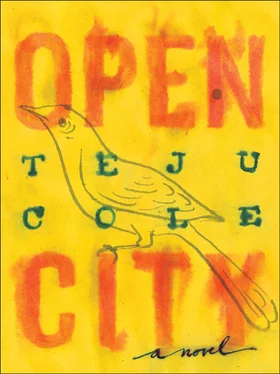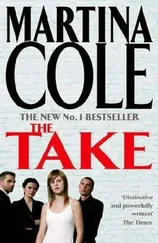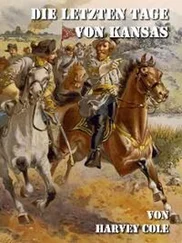Teju Cole - Open City
Здесь есть возможность читать онлайн «Teju Cole - Open City» весь текст электронной книги совершенно бесплатно (целиком полную версию без сокращений). В некоторых случаях можно слушать аудио, скачать через торрент в формате fb2 и присутствует краткое содержание. Год выпуска: 2011, Издательство: Random House, Жанр: Современная проза, на английском языке. Описание произведения, (предисловие) а так же отзывы посетителей доступны на портале библиотеки ЛибКат.
- Название:Open City
- Автор:
- Издательство:Random House
- Жанр:
- Год:2011
- ISBN:нет данных
- Рейтинг книги:5 / 5. Голосов: 1
-
Избранное:Добавить в избранное
- Отзывы:
-
Ваша оценка:
- 100
- 1
- 2
- 3
- 4
- 5
Open City: краткое содержание, описание и аннотация
Предлагаем к чтению аннотацию, описание, краткое содержание или предисловие (зависит от того, что написал сам автор книги «Open City»). Если вы не нашли необходимую информацию о книге — напишите в комментариях, мы постараемся отыскать её.
But it is not only a physical landscape he covers; Julius crisscrosses social territory as well, encountering people from different cultures and classes who will provide insight on his journey — which takes him to Brussels, to the Nigeria of his youth, and into the most unrecognizable facets of his own soul.
Open City — читать онлайн бесплатно полную книгу (весь текст) целиком
Ниже представлен текст книги, разбитый по страницам. Система сохранения места последней прочитанной страницы, позволяет с удобством читать онлайн бесплатно книгу «Open City», без необходимости каждый раз заново искать на чём Вы остановились. Поставьте закладку, и сможете в любой момент перейти на страницу, на которой закончили чтение.
Интервал:
Закладка:
When I came out to Central Park South, the wind had become colder, the air brighter, and the cheer from the crowd steady and loud. A great stream of finishers came coasting down the homestretch. As Fifty-ninth Street was cordoned off, I walked down to Fifty-seventh and came back up again to join Broadway. The subway was too congested at Columbus Circle, and so I walked toward Lincoln Center, to catch the train at its next uptown stop. At Sixty-second Street, I fell in with a lithe man with graying sideburns who carried a plastic bag with a tag on it and was visibly exhausted, limping on slightly bowed legs. He wore shorts and black tights, and a blue, long-sleeved fleece jacket. From his features, I guessed he was Mexican or Central American. We walked in silence for a while, not intentionally walking together but finding ourselves moving at the same pace and in the same direction. Eventually, I asked him whether he had just finished the race and, when he nodded and smiled, congratulated him. But, I began to think, after twenty-six miles and 385 yards, he had simply collected his bag, and was walking home. There were no friends or family present to celebrate his achievement. I pitied him, then. Speaking again, deflecting these private thoughts, I asked if it had been a good race. Yes, he said, a good race, the conditions were good for running, not too hot. He had a pleasant but worn face, and must have been about forty-five or fifty. We walked a little farther, for two or three blocks, punctuating our silences with small talk about the weather and the crowds.
At the street crossing in front of the opera houses, I bid him goodbye and began myself to walk faster. I imagined his limping form receding as I pressed ahead, his wiry frame bearing a victory apparent to none but himself. I had bad lungs as a child and have never been a runner, but I instinctively understand that burst of energy a marathoner can usually find at the twenty-fifth mile, so close to the finish. More mysterious is what keeps such people going through the nineteenth, the twentieth, the twenty-first mile. By that point the buildup of ketones would have made the legs rigid, and acidosis would be threatening to quell the will and shut the body down. The first man who ever ran a marathon had died instantly, and small wonder: it is an act of extreme human endurance, still remarkable no matter how many people now do it. And so, turning around to look at my erstwhile companion, and thinking of Phidippides’ collapse, I saw the situation more clearly. It was I, no less solitary than he but having made the lesser use of the morning, who was to be pitied.
I soon arrived at the big Tower Records store on the corner of Sixty-sixth Street, and was surprised to see the signs outside which announced that the store as well as the company behind it were going out of business. I had been in the store many times before, had probably spent hundreds of dollars on music there, and it seemed right, if only for old times’ sake, to revisit it, before the doors closed for good. I went in, intrigued also by the promise that prices had been slashed on all items, although I didn’t particularly feel like buying anything. The escalator took me to the second floor, where the classical section, busier than usual, seemed to have been commandeered in its entirety by old and middle-aged men in drab coats. The men were going through the CD bins with something of the patience of grazing animals, and some of them had red shopping baskets into which they dropped their selections, while others clutched the shiny plastic packages to their chests. The store’s stereo was playing Purcell, a rousing anthem I recognized right away as one of the birthday odes for Queen Mary. I usually disliked whatever was being played on a music store’s speakers. It spoiled the pleasure of thinking about other music. Record shops, I felt, should be silent spaces; there, more than anywhere else, the mind needed to be clear. In this case, though, because I recognized the piece, and because it was something I loved, I didn’t mind.
The next disc they played, though utterly unlike the first, was another I immediately recognized: the opening movement of Mahler’s late symphony Das Lied von der Erde . I returned to my browsing, moving from bin to bin, from reissues of Shostakovich symphonies played by long-forgotten Soviet regional orchestras to Chopin recitals by fresh-faced Van Cliburn Competition runners-up, feeling that the price reductions were insufficiently sharp, losing any real interest in shopping, and finally beginning to acclimatize to the music playing overhead and to enter the strange hues of its world. It happened subliminally, but before long, I was rapt and might have, for all the world, been swaddled in a private darkness. In this trance, I continued to move from one row of compact discs to another, thumbing through plastic cases, magazines, and printed scores, and listening as one movement of the Viennese chinoiserie succeeded another. On hearing Christa Ludwig’s voice, in the second movement, a song about the loneliness of autumn, I recognized the recording as the famous one conducted by Otto Klemperer in 1964. With that awareness came another: that all I had to do was bide my time, and wait for the emotional core of the work, which Mahler had put in the final movement of the symphony. I sat on one of the hard benches near the listening stations, and sank into reverie, and followed Mahler through drunkenness, longing, bombast, youth (with its fading), and beauty (with its fading). Then came the final movement, “Der Abschied,” the Farewell, and Mahler, where he would ordinarily indicate the tempo, had marked it schwer , difficult.
The birdsong and beauty, the complaints and high-jinks of the preceding movements, had all been supplanted by a different mood, a stronger, surer mood. It was as though the lights had, without warning, come blazing into my eyes. It simply wasn’t possible to enter the music fully, not in that public place. I placed the small pile of discs in my hand onto the nearest table and left. I made it into the uptown train just as the doors were closing. By this time, the crowds from the marathon were beginning to thin out. I sat down and leaned back. The five-note figure from “Der Abschied” continued on from where I escaped, playing through with such presence that it was as though I were in the store listening to it. I sensed the woodsiness of the clarinets, the resin of the violins and violas, the vibrations of the timpani, and the intelligence that held them all together and drew them endlessly along the musical line. My memory was overwhelmed. The song followed me home.
Mahler’s music fell over my activities for the entirety of the following day. There was some new intensity in even the most ordinary things all around the hospital: the gleam on the glass doors at the entrance of the Milstein Building, the examination tables and gurneys down on the ground floor, the stacks of patients’ files in the psychiatry department, the light from the windows in the cafeteria, the sunken heads of uptown buildings from that height, as if the precision of the orchestral texture had been transferred to the world of visible things, and every detail had somehow become significant. One of my patients had sat facing me, with his legs crossed, and his raised right foot, which twitched in its polished black shoe, also somehow seemed a part of that intricate musical world.
The sun was setting as I left Columbia Presbyterian, giving the sky the look of tin. I took the subway down to 125th Street and, on my walk up to my neighborhood, feeling much less frayed than I usually did on Monday nights, I took a detour and walked for a while in Harlem. I saw the brisk trade of sidewalk salesmen: the Senegalese cloth merchants, the young men selling bootleg DVDs, the Nation of Islam stalls. There were self-published books, dashikis, posters on black liberation, bundles of incense, vials of perfume and essential oils, djembe drums, and little tourist tchotchkes from Africa. One table displayed enlarged photographs of early-twentieth-century lynchings of African-Americans. Around the corner of St. Nicholas Avenue, the drivers of the black livery cabs gathered, smoking cigarettes and talking, awaiting the fares they could pick up off the clock. Young men in hooded sweatshirts, the denizens of an informal economy, passed messages and small nylon-wrapped packages to each other, enacting a choreography opaque to all but themselves. An old man with an ashen face and bulbous yellow eyes, passing by, raised his head to greet me, and I (thinking for a moment that he was someone I surely knew, or once knew, or had seen before, and quickly abandoning each idea in turn; and then fearing that the speed of these mental disassociations might knock me off my stride) returned his silent greeting. I turned around to see his black cowl melt into an unlit doorway. In the Harlem night, there were no whites.
Читать дальшеИнтервал:
Закладка:
Похожие книги на «Open City»
Представляем Вашему вниманию похожие книги на «Open City» списком для выбора. Мы отобрали схожую по названию и смыслу литературу в надежде предоставить читателям больше вариантов отыскать новые, интересные, ещё непрочитанные произведения.
Обсуждение, отзывы о книге «Open City» и просто собственные мнения читателей. Оставьте ваши комментарии, напишите, что Вы думаете о произведении, его смысле или главных героях. Укажите что конкретно понравилось, а что нет, и почему Вы так считаете.












